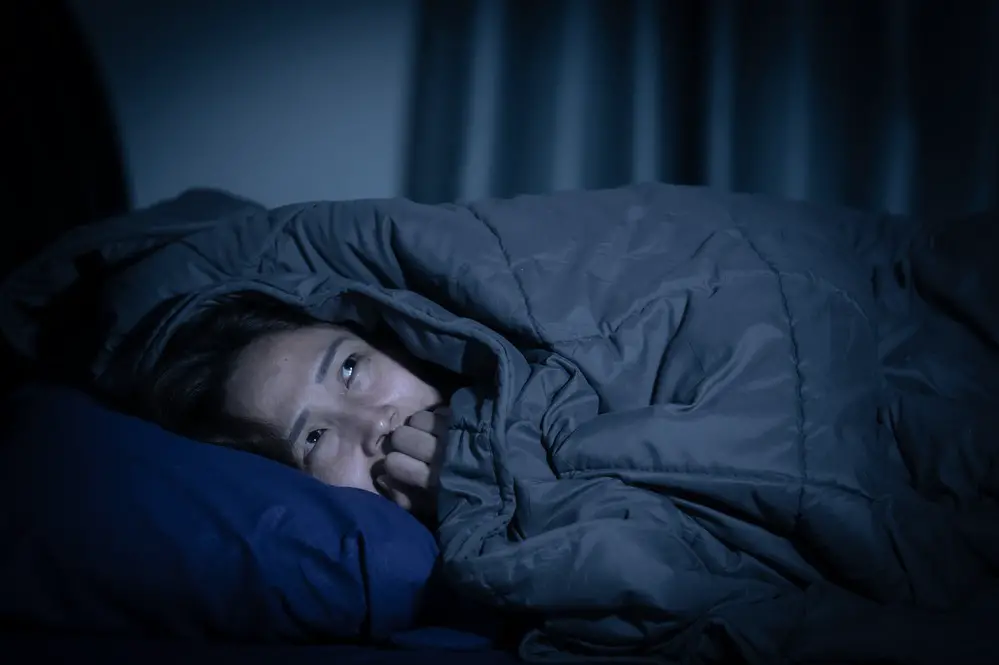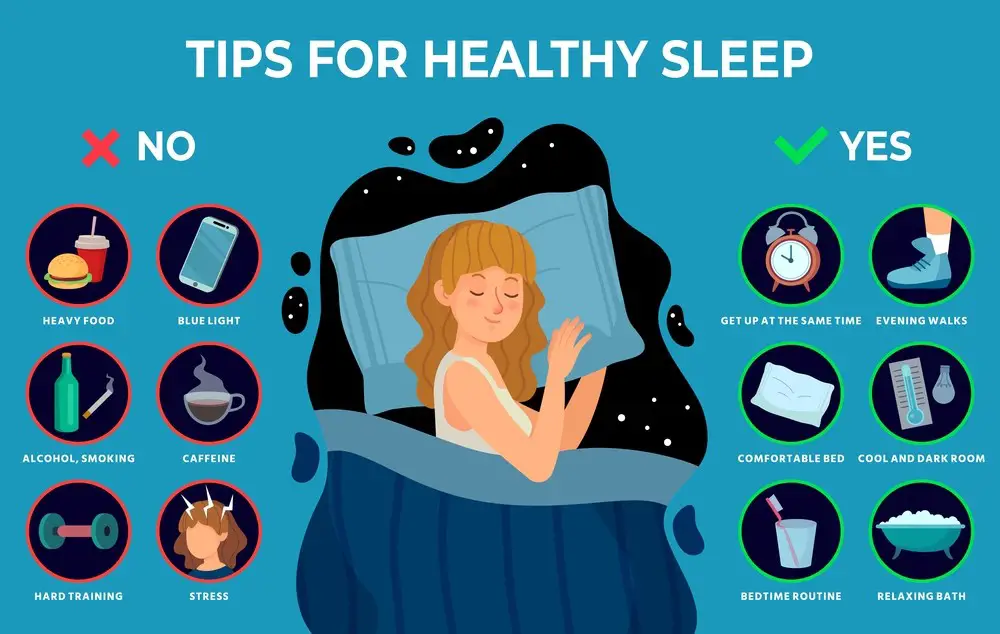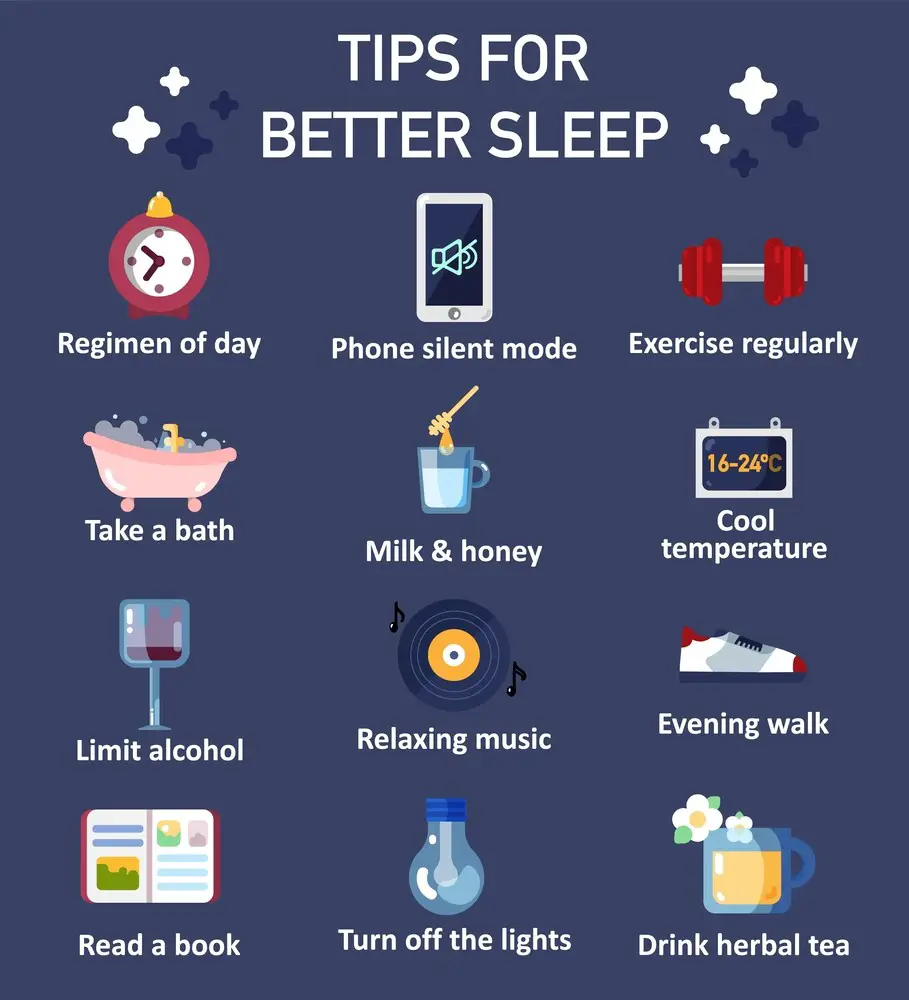As a BetterHelp affiliate, we receive compensation from BetterHelp if you purchase products or services through the links provided
To help you avoid common sleep mistakes and improve your sleep quality, we’ve gathered seven insightful tips from CEOs, founders, and other industry leaders. From maintaining a regular sleep schedule to investing in a comfortable mattress, these experts share their best advice on fixing the one sleep mistake most people make.
- Maintain a Regular Sleep Schedule
- Avoid Electronics in the Bedroom
- Purchase Quality Pillows
- Limit Daily Caffeine Intake
- Establish a Calming Nighttime Routine
- Create a Conducive Sleeping Environment
- Invest in a Comfortable Mattress
 Maintain a Regular Sleep Schedule
Maintain a Regular Sleep Schedule
As a holistic health coach, the number one sleep mistake I see is inconsistent bedtimes. Most people underestimate the importance of going to bed and waking up at the same time daily. This irregular schedule confuses your body’s circadian rhythms, making falling and staying asleep difficult.
The fix is simple—be stringent about a regular sleep schedule. Pick a bedtime that allows for your needed hours of sleep, and stick to it. Keep your wake-up time the same, too. With this consistency, your body learns when to release melatonin to make you sleepy and regulate hormones for waking. It takes discipline at first but becomes a habit.
Beyond that, optimize your sleep hygiene—limit alcohol and screens at night, avoid late, heavy meals, and establish a calming pre-bed routine. But a consistent sleep/wake schedule is the cornerstone. Maintain it seven days a week, and your sleep quality will dramatically improve. A steady rhythm realigns your natural circadian clock for deeper, more restorative sleep.
Mona Kirstein, Ph.D., Digital Strategist, Holistic Coach and Consultant, The Wholehearted Path
Avoid Electronics in Bedroom
Not bringing electronics into the bedroom is a hard habit to break, but it’s one of the leading issues for people trying to get a restful sleep. It is recommended that people leave their phones and other electronics in an area outside the bedroom and stop using them at least two hours before going to bed.
The light from the phone or other devices can cause your brain to think it’s still daytime. So, once you put your phone away, you are still very much alert. Social media can also be overstimulating and cause some anxiety. Especially if you get your work emails sent to your phone, you will constantly check them and think about everything you must do the next day. This isn’t healthy and will keep you up at night.
It is advisable to leave the phone out of the bedroom and avoid using it as early as you can before your head hits the pillow!
Kristie Tse, Founder, Uncover Counseling
Purchase Quality Pillows
One sleep mistake I made was not investing in the right pillow. I didn’t think it affected my sleep, so I used my cheap pillow. It wasn’t making me as comfortable as possible, negatively affecting my sleep each night.
Once I did invest in a pillow that fit my needs and body type, I immediately noticed an improvement in my sleep. I began sleeping better was more comfortable, and it paid off quickly.
Others make this sleep mistake and don’t invest in better pillows. They might not realize it, but they are hurting their sleep and negatively affecting their lives.
Richard Abrahams, Managing Director, Elmhurst Windows
Limit Daily Caffeine Intake
Consuming too much caffeine throughout the day can affect the quality of sleep. Sometimes, we don’t think about the coffee or other caffeinated beverages we consume until we are wide awake in our beds, wondering why we can’t fall asleep.
Caffeine can keep you alert and stays in your body long after consuming it. So, if you’re having three or more cups throughout the day, you will feel the effects. Limiting caffeine intake to one cup of coffee in the morning and finding other ways to keep alert can be beneficial. Matcha can be a better-caffeinated drink because it takes much longer to absorb into the body and provides calm alertness, which is better when trying to get some sleep.
James Blackwell, Founder and CEO, Quizgecko
Establish a Calming Nighttime Routine
The biggest sleep mistake most people make is watching an entertaining show in bed. This can significantly and negatively impact your sleep quality, since it makes your brain more likely to associate the bed with activities other than sleeping.
To fix this issue, you can establish a strict nighttime routine that involves nothing related to entertainment or stimulation for at least 30 minutes before you try to fall asleep. During this time, focus on calming activities such as reading a book, listening to calming music, meditating, or stretching instead of being glued to the TV or phone.
Roksana Bielecka, Community Manager, ResumeHelp
Create a Conducive Sleeping Environment
Most people make the mistake of thinking sleep is a passive activity. In reality, good sleep requires active decisions and thoughtful lifestyle habits to be successful.
An example might be ensuring that one’s bedroom has low light. Humans are sensitive to even small traces of light, so keeping the environment dark can help decrease disruption to the body clock. This can be fixed by using blackout curtains or closing blinds and shades during the evening hours—all aid in creating a conducive sleeping environment for restful slumber.
Michael Alexis, CEO, Virtual Team Building
Invest in a Comfortable Mattress
One common sleep mistake many people make is underestimating the significance of a comfortable mattress. Having the right mattress can be pivotal in ensuring proper body alignment and preventing shoulder and back pains. Neglecting the condition of your mattress can lead to disrupted sleep patterns and discomfort.
Individuals should invest in a high-quality mattress that suits their needs and preferences to rectify this mistake. A mattress that provides adequate support and comfort can lead to more restful sleep, alleviating aches and pains and ultimately enhancing daily productivity. It’s essential to prioritize the condition of your mattress, as it can significantly impact the overall quality of your sleep and, by extension, your daily life.
Martin Potocki, CEO, Jobera
 The Unspoken Sleep Rules: Our Extra Snooze-Worthy Tips
The Unspoken Sleep Rules: Our Extra Snooze-Worthy Tips
Kudos to you for absorbing industry leaders’ golden nuggets of sleep wisdom! But let’s take a moonlit stroll beyond the well-trodden path. Here are some more zzz-friendly tips you might have overlooked:
1. Mind the Dinner Clock
- Time It Right: Eating a hefty meal just before bed can trigger indigestion and keep you up. Aim to eat at least three hours before bedtime.
- Light and Easy: Opt for easily digestible foods like fruits and light proteins if you need a late-night snack.
2. The Power of Scent
- Aromatherapy: Scents like lavender and chamomile can work wonders to calm your mind.
- DIY Tip: A few drops of essential oil on your pillow can be a simple yet effective sleep aid.
3. Make Friends with White Noise
- Background Buzz: Sometimes, a little background sound, like a white noise machine or a fan, can help mask other disruptive sounds.
- App Alert: There are plenty of white noise apps if you’d rather not invest in a device.
4. The Temperature Game
- Cool Off: Keeping your room cool, around 65°F (18°C), can help you fall asleep faster.
- Foot Trick: Sticking one foot from under the covers can help regulate body temperature.
5. Dress for Sleep Success
- Comfy Threads: Believe it or not, what you wear can make a difference. Loose, breathable clothes can enhance your sleep.
- Sock It: Warm feet can help you fall asleep faster. So don’t be shy—wear those socks!
6. Consider a Sleep Journal
- Track Habits: Note what you did during the day, what you ate, and how well you slept. Patterns may emerge.
- Dream Diary: Sometimes, jotting down dreams can provide insights into your subconscious mind.
7. The ‘Do Not Disturb’ Mode
- Phone Settings: Use your phone’s ‘Do Not Disturb’ function to prevent late-night notifications.
- Human Version: Let family members or roommates know about your sleep schedule so they can help create a peaceful environment.
There you have it, folks! Alongside sage advice from sleep-savvy pros, these extra tips could be the bedtime stories you didn’t know you needed. From today, your sleep game is not just about hitting the sack—it’s about making that sack a cozy fortress of slumbering bliss! ?
About Jacob Maslow
After surviving the traumatizing events of 9/11, I took it upon myself to heal through helping others. I’m the primary caregiver of my children and understand from first-hand experience the lonely paths you have to walk as a partner and parent when leaving an unhealthy relationship.
We’re all echoing in a dark space that doesn’t have to be this empty, and that’s been my mission since finding solace and recovery in therapy: To help comfort others who are still in shock and at the prime of their struggle.
I came across BetterHelp after searching for this type of community. I wanted to belong to a body of proactive therapists and supportive therapy veterans that allowed me to see other sides of the story.
It was unconventional, and that’s what attracted me most. During my most challenging times, when my ex-wife completely cut me off from my children, I found comfort and clarity through BetterHelp.
Instead of being chained to a strict therapist recommendation, I was in charge of who I felt understood my struggle most. That allowed me to find my true peace, as I was reunited with those who read behind my words and had first-hand experience with my trauma.
Recovery is a choice; with BetterHelp, that choice will be a few clicks away. You can join their couples-oriented platform, Regain.us for those stuck with family estrangement and toxic relationship patterns.
- 7 Ideas to Help You Relax and Unwind on a Family Vacation - April 27, 2025
- How Having Cybersecurity Protection Helps You Relax - April 25, 2025
- 8 Reasons Why Spending Time Outside Calms You Down - April 25, 2025
This site contains affiliate links to products. We will receive a commission for purchases made through these links.


 Maintain a Regular Sleep Schedule
Maintain a Regular Sleep Schedule The Unspoken Sleep Rules: Our Extra Snooze-Worthy Tips
The Unspoken Sleep Rules: Our Extra Snooze-Worthy Tips
